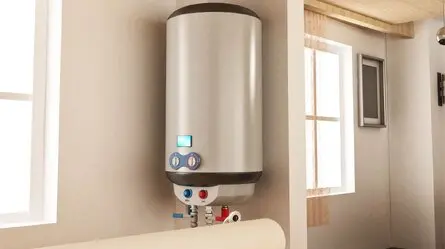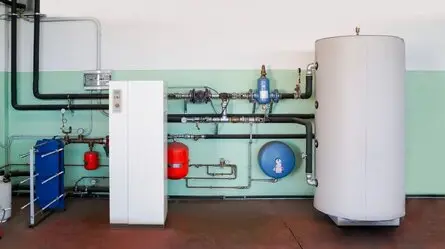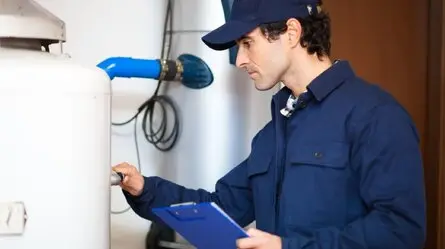Hot water systems are essential fixtures in every household, providing comfort and making daily tasks much easier.
However, when confronted with a leaking hot water heater, it’s vital to comprehensively understand the causes, effective fixes, and preventive measures to minimise potential damage.
This article explores common causes of hot water system leaks and equips you with the knowledge to identify the problem. We’ll weigh DIY solutions against professional help, offer practical preventive tips, and guide you when it might be time to replace your hot water system.
So, if your hot water system is leaking, or you want to be prepared for a water leak, join us as we provide valuable insights and expert advice to address any hot water system concerns!
Common Causes of Hot Water System Leaks
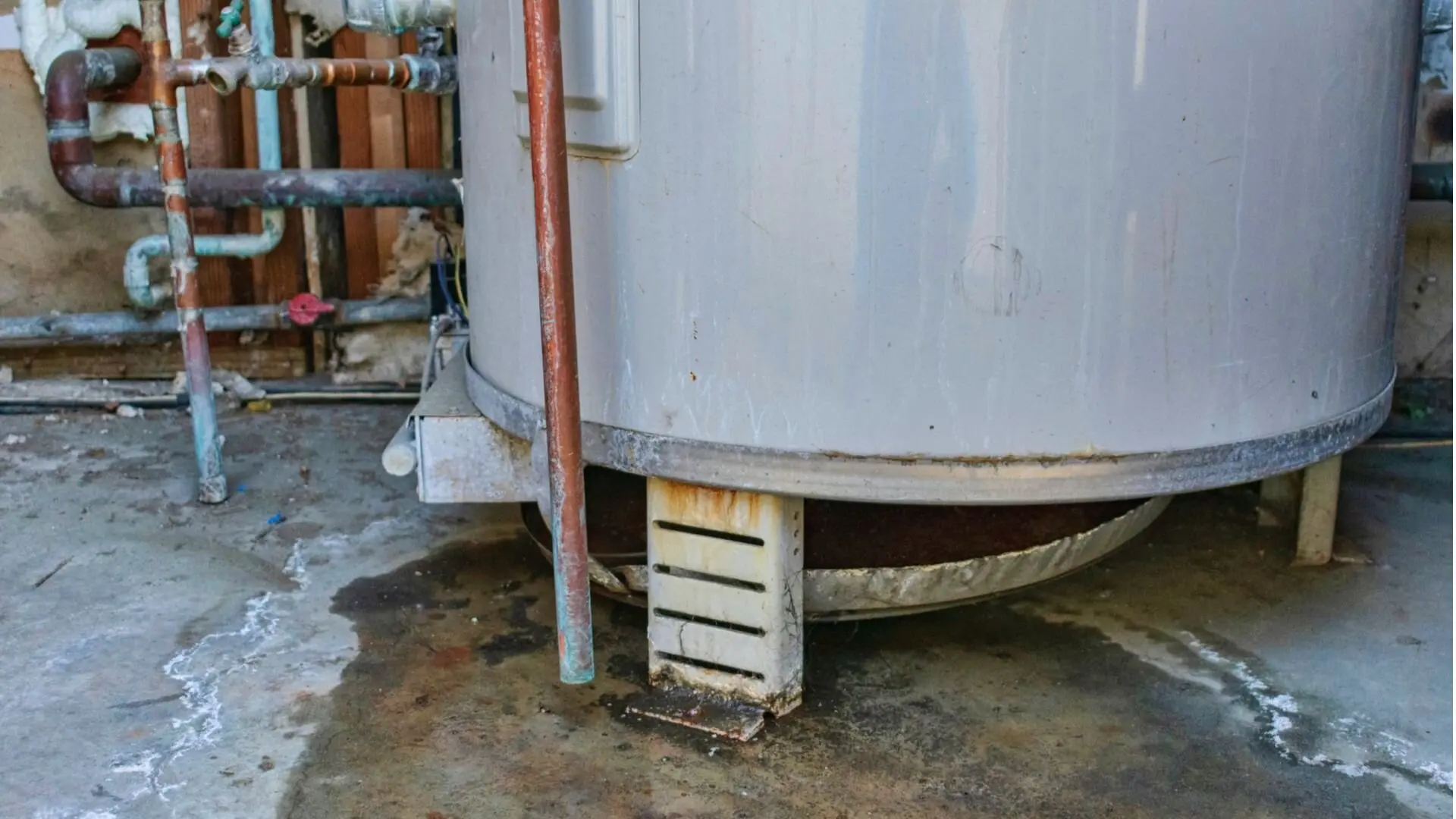
Addressing hot water system leaks starts with pinpointing the source, which is crucial for resolving the issue effectively. A thorough system inspection can help uncover the cause, allowing you to take the necessary steps to fix it. Here are some common culprits to consider:
Deteriorated Fittings
Over time, the fittings in a hot water system, such as pipe connections, seals, or joints, can deteriorate due to age, usage, or exposure to harsh weather conditions. When these fittings become loose, damaged, or worn out, they can result in leaks. Regular inspection and timely replacement of deteriorated fittings are essential to prevent potential leaks.
Excessive Water Pressure
Hot water systems are designed to operate within specific pressure limits. However, if the pressure within the system exceeds these limits, it can strain the internal components, including pipes, valves, and seals. This excessive pressure can weaken the system and lead to leaks. Monitoring and maintaining proper water pressure through pressure relief valves or pressure limiting valves can help prevent leaks caused by excessive pressure.
Corrosion And Rust
Corrosion is a natural process that occurs over time, particularly in older hot water systems. It refers to the gradual deterioration of metal pipes and components due to chemical reactions with water and environmental factors. Corrosion weakens the pipes' integrity, making them more susceptible to developing leaks.
Wear And Tear
Like any mechanical system, hot water systems experience wear and tear with regular use. Continuous heating and cooling cycles, along with water flow, can gradually affect the internal components. Over time, this can lead to leaks. Regular maintenance, like servicing and replacing worn parts, can extend the system’s life and reduce leak risks.
Improper Installation And Maintenance
Incorrect installation or inadequate maintenance practices can also contribute to hot water system leaks. Improperly installed pipes, fittings, or valves can lead to weak connections and potential leaks. Inadequate maintenance, such as neglecting routine inspections, servicing, or repairs, can allow minor issues to escalate into more significant problems, including leaks. Engaging a professional plumber with expertise in installing hot water systems and ensuring regular maintenance can help prevent leaks caused by installation or maintenance issues.
Visible signs like water dripping, dampness, or hissing sounds are key indicators to watch for. Inspect the pressure relief valve if water pressure seems to be the issue. Carefully examining these clues allows homeowners to pinpoint the source of the leak and take the appropriate steps to resolve it efficiently.
DIY Or Professional Help When Fixing A Hot Water Heater Leak?
When faced with a leaking hot water system, homeowners often wonder whether they should attempt a DIY fix or seek assistance from a local plumber. While some minor issues can be resolved through DIY efforts, it’s essential to understand the risks and limitations involved.
Some common DIY fixes for hot water system leaks include replacing valves, tightening connections, or fixing loose fittings. However, it’s important to be cautious. Mishandling components or attempting tricky repairs without proper know-how can worsen the issue, potentially causing more harm.
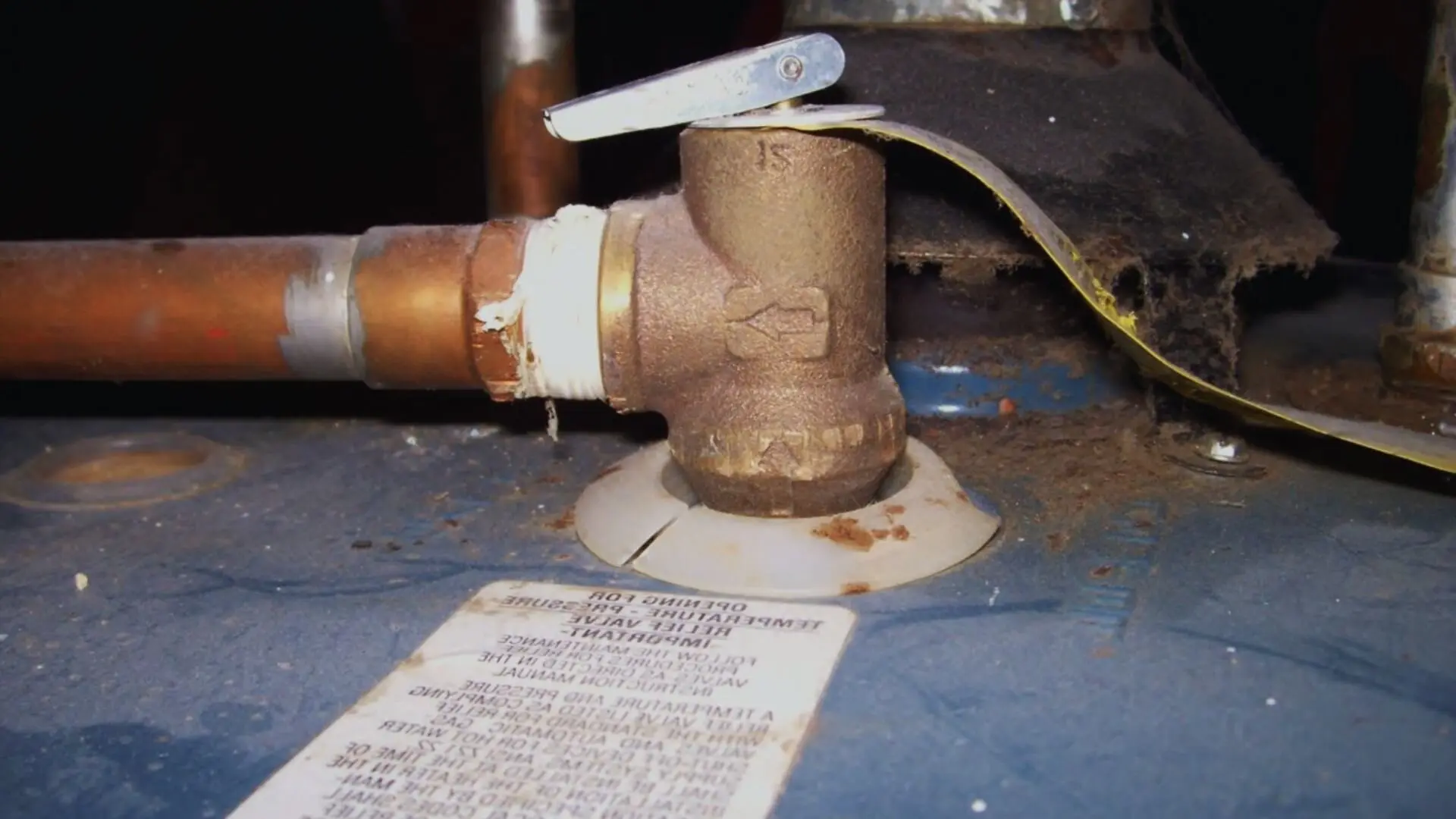
In contrast, hiring a professional plumber offers several advantages. Experienced plumbers possess the knowledge and tools to diagnose the issue accurately and provide lasting solutions, such as checking your pressure relief valve or pipe fittings.
They can identify underlying problems with your hot water heater that may not be apparent to untrained eyes. Additionally, professional plumbers can ensure the safety of the entire system, identify potential risks, and prevent future leaks.
Risks And Damages Associated With A Leaking Hot Water System
Ignoring a leaking hot water system can lead to major risks and damages. Problems like water stains, mould growth, or structural deterioration often result from neglected leaks. Extended exposure to water can weaken foundations, walls, and flooring, resulting in expensive repairs.
Along with us, water leaks contribute to water wastage, increasing utility bills and negatively impacting the environment. The continuous loss of hot water may disrupt daily activities and cause inconvenience for households.
In addition to property damage and financial implications, leaks pose safety risks. Water dripping near electrical connections, such as a circuit breaker, can lead to electrical hazards, potentially causing accidents or electrical system damage.
In particular, gas hot water system leaks can be dangerous due to the risk of gas leaks and associated fire hazards. Understanding potential risks and damages reinforces the importance of prompt action when detecting a hot water system leak.
Preventive Measures To Avoid Hot Water System Leaks
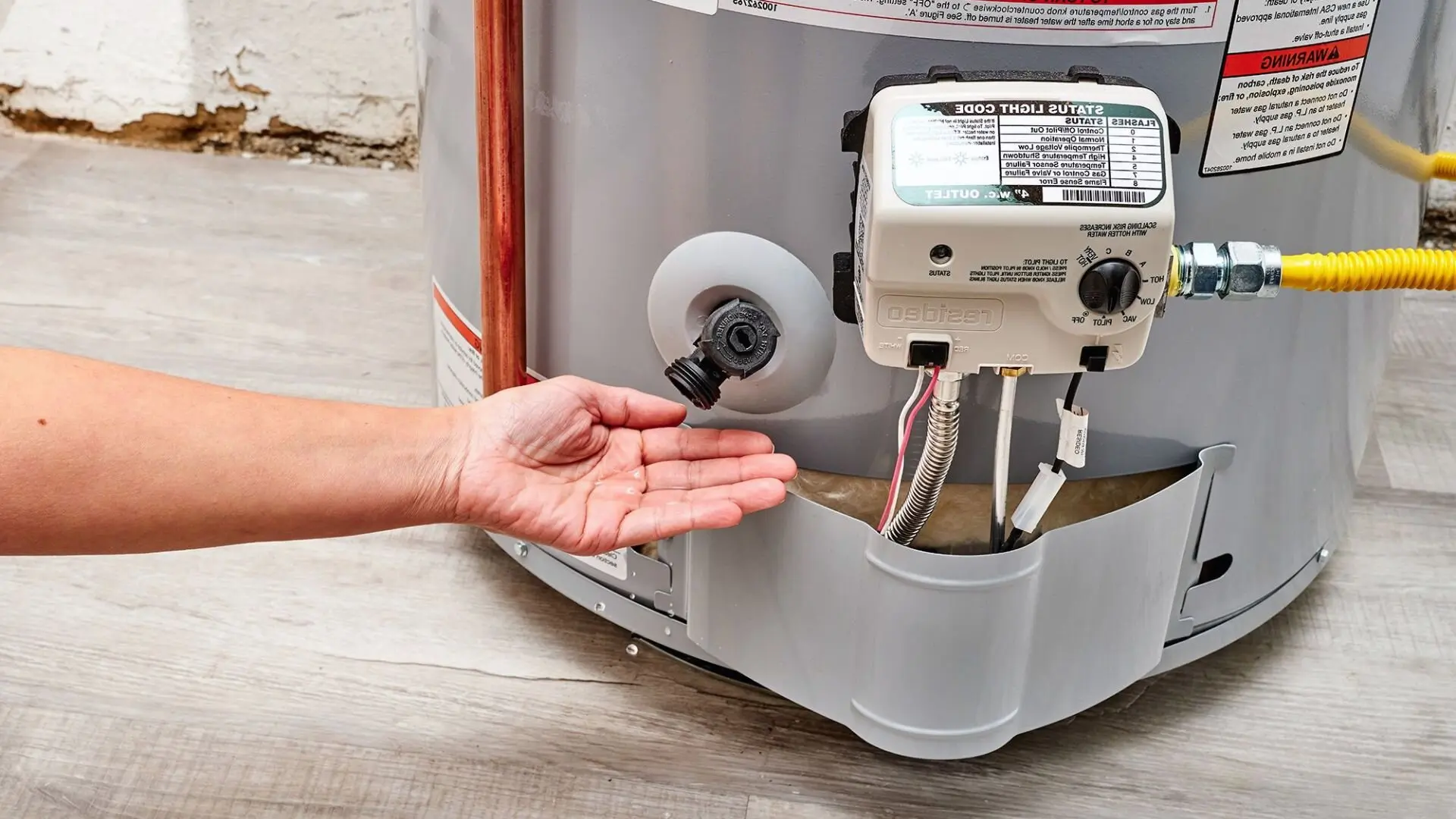
While leaks can occur unexpectedly, implementing preventive measures can significantly reduce the likelihood of hot water heater leaks. Following these simple guidelines, homeowners can safeguard their hot water systems and avoid potential damage.
Engaging a professional plumber for periodic inspections and servicing helps identify and address potential issues before they escalate. Routine maintenance includes checking and testing pressure relief valves, temperature relief valves, cold water inlet valves, and pressure-limiting valves.
Additionally, monitoring water pressure is crucial. Excessive water pressure strains the hot water system, increasing the risk of leaks. Installing a pressure limiting valve ensures the water pressure remains within safe limits.
It’s crucial to protect your hot water system from harsh weather. Insulating pipes, tanks, and valves help buffer against extreme temperatures, preventing freezing or overheating that could cause leaks.
Lastly, it is essential to be mindful of what enters the hot water system. Tiny particles and sediments can accumulate, causing corrosion and subsequent leaks. Installing a filter or flushing the system periodically helps maintain water quality and reduce the risk of leaks.
Temporarily Stopping A Hot Water System Leak
Is your hot water system leaking right now? When faced with a leaking hot water system, it’s essential to mitigate the damage until professional help arrives immediately. Implementing temporary solutions can help reduce water leakage and prevent further complications.
The first step is to turn off the water supply to the hot water system. Locating the main valve and shutting it off will prevent additional water from entering the system, minimising the leak’s severity.
Turning off the gas isolation valve or shutting off the gas meter ensures safety and prevents gas leaks in gas hot water systems.
If valves or fittings leak visible water, gently tighten them to minimise the flow. Avoid excessive force, as it may worsen the problem.
Placing a bucket or container under the leak can collect dripping water and prevent it from spreading. Towels or absorbent materials can also soak up excess water and protect surrounding areas.
Remember, these temporary measures are not permanent solutions. Seeking assistance from a professional plumber, such as Woolf Plumbing, is crucial to address the underlying issue and prevent further damage.
Signs And Solutions for Hot Water Tank Leaks
Hot water tanks are a common source of leaks in hot water systems. Identifying the signs of a leaking tank is crucial for timely intervention and preventing extensive damage. Here are some indicators that your hot water tank may be leaking:
- Water pooling around the tank’s base: If you notice water accumulating around the hot water tank or puddles forming on the floor, it’s a clear sign of a leak.
- Dampness or water stains on walls or flooring near the tank: Leaking water can seep into surrounding areas, leading to visible dampness or water stains on nearby walls, floors, or ceilings.
- Unusual noises: If you hear gurgling, hissing, or dripping sounds from the hot water tank, it may indicate a leak.
- Fluctuating water temperature: A leaking tank can result in an inconsistent hot water supply, as water escapes before reaching the desired temperature.
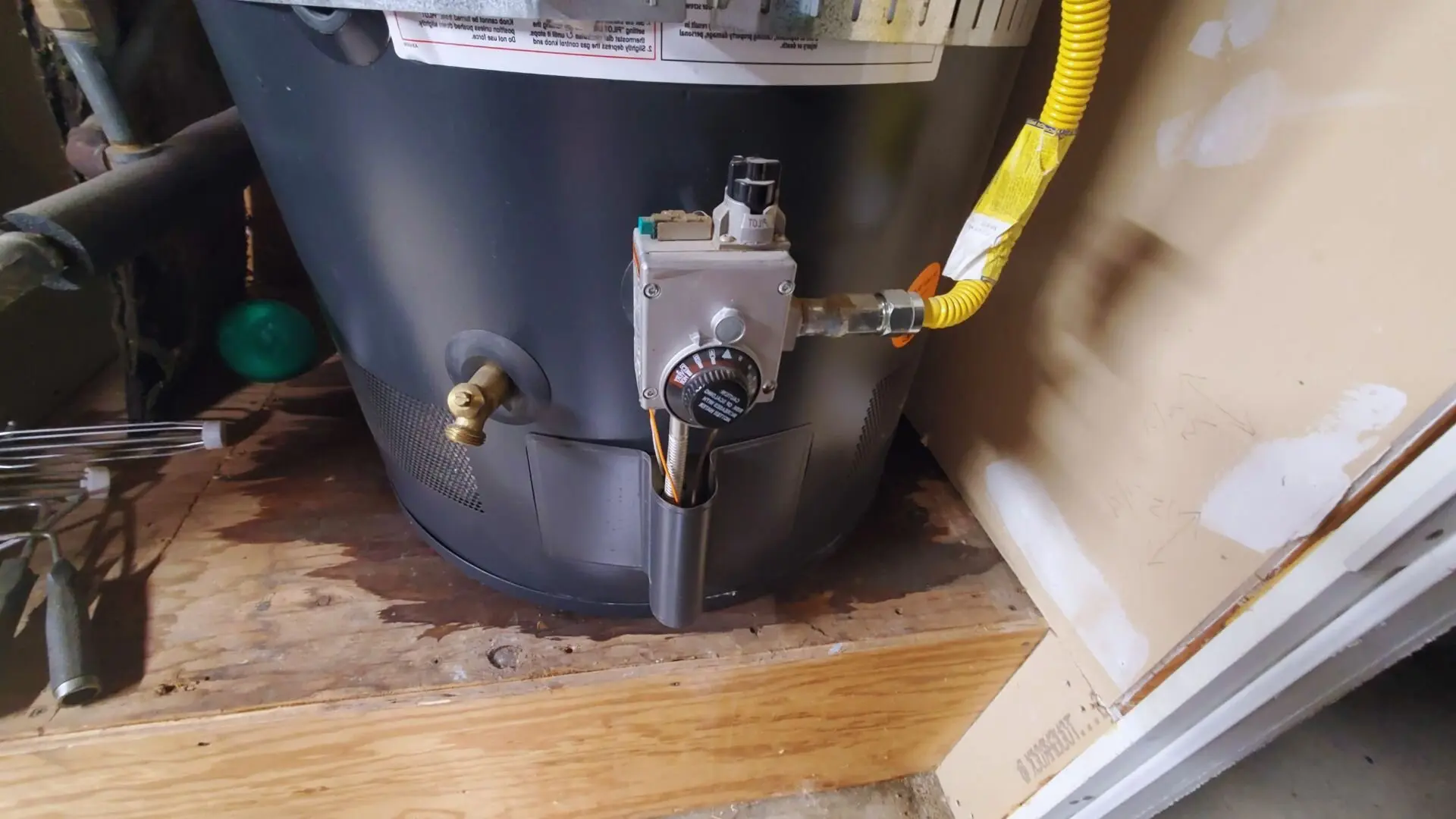
When faced with a leaking hot water tank, it’s essential to take prompt action. Here are possible solutions depending on the severity of the leak:
Minor leaks
For small, manageable leaks, you can attempt a temporary fix using a sealant specifically designed for hot water tanks. Apply the sealant to the affected area according to the manufacturer’s instructions. However, remember that this is a temporary solution, and professional assistance should be sought for a permanent fix.
Significant leaks
If the leak is substantial or worsening, it’s best to immediately turn off the water supply and contact a professional plumber. Attempting to fix a severe leak without proper knowledge and expertise can lead to further damage and potential hazards.
Damaged tank
In cases where the hot water tank is extensively damaged, replacement is often the best solution. A professional plumber can assess the tank’s condition and recommend an appropriate replacement unit. Upgrading to a new hot water system may also be considered, especially if the existing system is old or inefficient.
It’s important to note that attempting repairs or replacements without professional guidance can result in safety hazards, inefficient repairs, and voided warranties.
Taking Swift Action to Address Hot Water System Leaks
A leaking hot water system can cause significant inconvenience, property damage, and safety risks. Homeowners must understand the common causes of leaks, the importance of professional assistance, and the preventive measures to avoid leaks, which are crucial for homeowners.
Swift action, whether through temporary fixes or contacting a professional plumber, can minimise the impact of leaks and prevent further damage. Remember, addressing hot water system leaks promptly and effectively ensures an uninterrupted hot water supply, prolongs the system’s lifespan and provides peace of mind.
Trust Woolf Plumbing, Perth’s leading plumbing experts, to handle all your hot water system needs, from leak detection to repairs and replacements. Contact us today for reliable and efficient solutions across South Perth, Leeming and Hamilton Hill!
Frequently Asked Questions (FAQs) About Hot Water System Leaks
1. Are solar hot water systems more prone to leaks compared to electric hot water systems?
No, a solar hot water system is less inherently prone to leaks than an electric hot water system. However, both systems can experience leaks due to various factors, such as deteriorated fittings, excessive pressure, or corrosion.
2. What role does hot water system technology play in preventing leaks?
Hot water system technology, including relief valves, prevents leaks. Relief valves help regulate pressure within the system, preventing excessive strain on the components and reducing the risk of leaks.
3. Can a heat pump hot water system develop leaks over time?
Yes, a heat pump hot water system can develop leaks over time. Factors such as wear and tear, corrosion, or faulty components can contribute to leaks in heat pump systems. Regular inspection, maintenance, and timely repairs by a qualified hot water specialist can help identify and address potential leaks to prevent further damage.
4. Is a gas hot water heater more likely to experience leaks at the cold water inlet valve?
Leaks at the cold water inlet valve can occur in gas and electric hot water systems. The likelihood of leaks at the cold water inlet valve is not necessarily higher in gas hot water heaters.
5. What should I do if I notice a leaking relief valve in my electric hot water system?
If you notice a leaking relief valve in your hot water system, it is crucial to take immediate action. First, turn off the water supply to the system to prevent further leakage. Then, contact a professional plumber who specialises in hot water system repairs.


